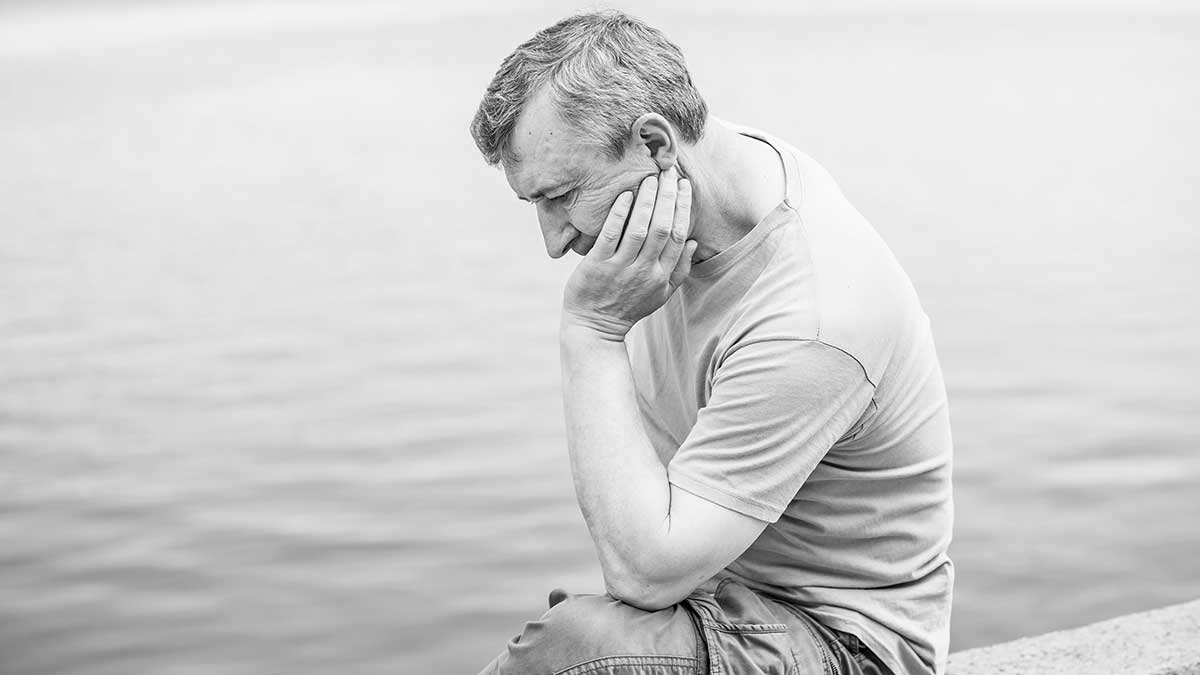Integrative Psychiatry – Identifying Depressive Symptoms and Seeking Treatment

Depression is a syndrome, a group of symptoms that consistently occur together, yet there is no typical lab test for diagnosing depression. Therefore, healthcare professionals must rely on patterns of symptoms for diagnosis. These symptoms are typically a combination of emotional, behavioral, and physical manifestations.
The DSM-5 – a manual used by mental health professionals in the United States describing various common groupings of symptoms and classifying them into mental disorders such as depression – notes the following symptoms of depression:
- persistent sadness, anxiety, or irritability
- marked decrease in interest or pleasure in almost all activities
- binge eating/weight gain OR anorexia/weight loss
- sleeping too much OR inability to sleep
- fatigue
- feeling restless/keyed up OR feeling slowed down
- pervasive feelings of worthlessness or guilt
- trouble concentrating, remembering, or making decisions
- recurring thoughts about death or suicide.
Pursuant to the DSM-5’s definition, a person experiencing 5 or more of the above symptoms for most of the day, nearly every day, for at least two weeks, will meet the criteria of diagnosis as long as these symptoms cause significant distress upon the person or have a negative impact on their daily functioning.
Note that the symptoms above are different from grief, which is often a normal reaction to many of life’s circumstances. When people experience grief, as opposed to in depression, they are able to experience some positive emotions and maintain their self-esteem.
However, the fact that the list is quite long, and because some of the symptoms listed are indeed opposites of each other, it is easy to see just how many different presentations of depression there are. Therefore, all the above symptoms must be viewed in the context of a person’s individualized life. This is where the use of integrative psychiatry is most important.
While the DSM-5 symptoms cover a wide range of possible presentations of depression, just because a patient does not meet 5 of the criteria listed does not mean that they are not depressed. In reality, there are many less obvious symptoms a patient can express which are not found on the DSM-5 list and may still point to depression.
These include the following, amongst others:
- reckless behavior
- ongoing aches/pains
- problems with digestion
- substance use
- working too much
- crying easily and often
- lack of interest in the future
- feeling isolated and that no one cares
- difficulty with interpersonal relationships.
If you feel that you are suffering from a combination of these symptoms, it is imperative to your wellbeing that you reach out to a healthcare professional. With a healthcare professional you will be able to, first of all, establish a connection with someone who can help you address and work through the distressing symptoms you are experiencing. Secondly, you will be able to explore the various causes and treatment options for your symptoms.
Because depression is multi-faceted in its presentation and its causes are unique to each person, it is important to find a specialist who is equipped to address your various symptoms from different angles. Integrative psychiatry is exceptionally positioned to do just that by taking a comprehensive approach to mental health treatment. This approach involves a thorough mind-body evaluation and combines traditional psychiatric treatments with holistic therapies such as nutrition, supplementation, lifestyle interventions, and mind-body practices in contrast to traditional psychiatry which primarily focuses on using medications only to treat depression symptoms.
If you are experiencing suicidal thoughts or feel you cannot cope with your symptoms of depression, please call/text 988 (National Suicide Hotline) or text HOME to 741-741 (Crisis Text Line). Your life is valuable and we, the people of the world, need you.
Cacciaguida, Luisa, MD
Functional Medicine I Psychiatrists
Englewood, NJ
SPONSORED ARTICLE
For the most up-to-date information, please contact the company directly.The photos contained in the article serve only as an illustration of the article.
BUSINESS ONLINE CATALOG
